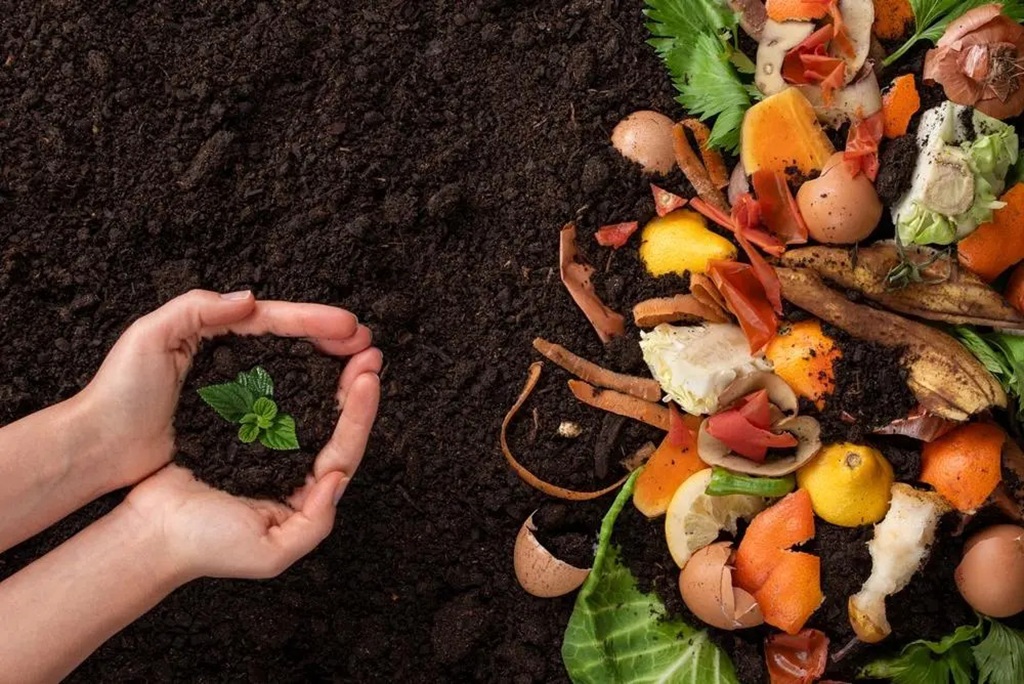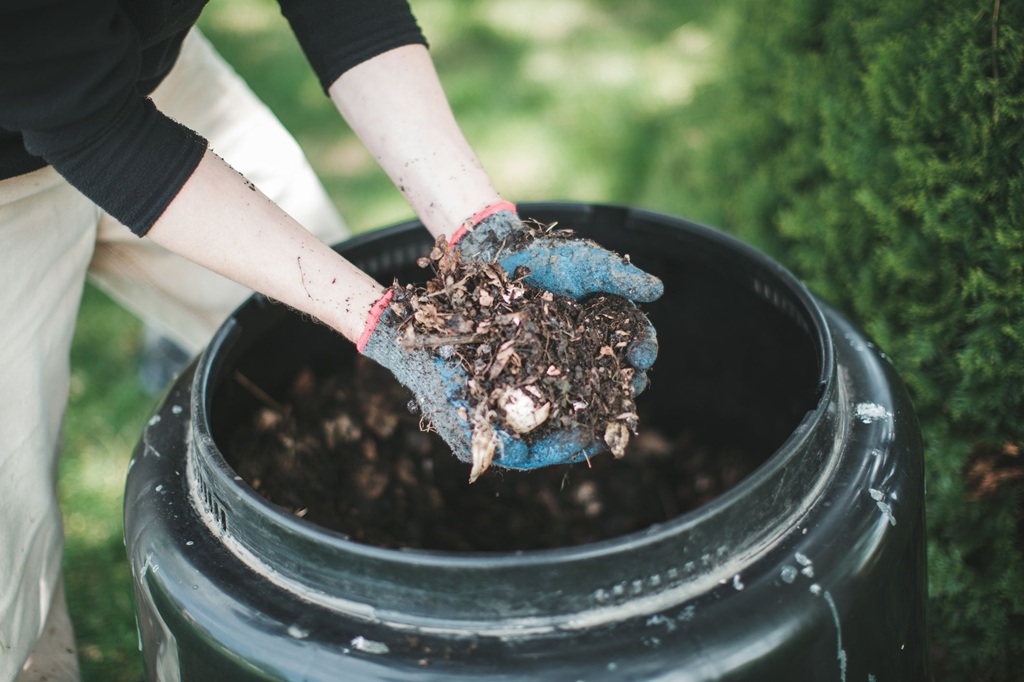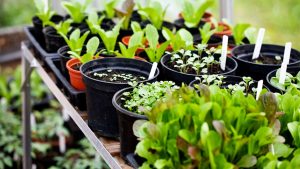Compost tea is a liquid fertilizer teeming with beneficial bacteria, fungi, and nutrients. It’s like a probiotic smoothie for your plants, boosting their growth, health, and resilience. This living elixir can enhance nutrient uptake, improve soil structure, and even fight off pests and diseases. If you’re looking to take your gardening to the next level, brewing compost tea is a fantastic way to do it.
This comprehensive guide will walk you through the process of making nutrient-rich compost tea step-by-step, from gathering your ingredients to applying them to your garden. We’ll also delve into the science behind compost tea, explore its benefits, and answer frequently asked questions.
Understanding Compost Tea
Compost tea is created by steeping high-quality compost in water, allowing beneficial microorganisms to multiply and thrive. This process extracts nutrients and beneficial microbes from the compost, making them readily available for your plants. Think of it as brewing a concentrated liquid fertilizer packed with life-enhancing organisms.
The key to effective compost tea lies in aerobic fermentation. This means the brewing process needs plenty of oxygen to support the growth of beneficial aerobic bacteria and fungi. These microbes are the workhorses of compost tea, breaking down organic matter, converting nutrients into plant-available forms, and building healthy soil.
Gathering Your Ingredients and Equipment
Before you start brewing, gather the following:
- High-quality compost: Use mature, well-composted material rich in diverse organic matter. Avoid compost with foul odors or signs of pathogens.
- Non-chlorinated water: Chlorine can harm beneficial microorganisms. Use rainwater, well water, or dechlorinated tap water.
- Molasses: Unsulfured blackstrap molasses acts as a food source for the microbes, stimulating their growth.
- Brewing container: A 5-gallon bucket is ideal for small batches. For larger quantities, consider a larger container or a dedicated compost tea brewer.
- Aeration pump and airstones: These provide essential oxygen for the brewing process.
- Hose or watering can: For applying the finished compost tea.
Step-by-Step Brewing Process
- Prepare the compost: Fill a compost tea bag or a fine-mesh bag with your compost. This prevents clogging your aeration system.
- Fill the container: Fill your brewing container with non-chlorinated water, leaving some space at the top for aeration.
- Add the compost bag: Submerge the compost bag in the water.
- Add molasses: Add 1-2 tablespoons of molasses per gallon of water.
- Aerate the mixture: Place the airstones at the bottom of the container and connect them to the aeration pump. Turn on the pump to begin aeration.
- Brewing time: Brew for 24-36 hours, ensuring continuous aeration. The tea should develop a frothy layer on top, indicating a healthy microbial population.
- Check pH and Brix: Ideally, the pH should be between 6.0 and 6.8. Brix, a measure of dissolved solids, indicates nutrient concentration. Aim for a Brix reading of 2-4.
- Application: Dilute the compost tea with water at a 1:10 ratio before applying it to your plants. Use it as a soil drench or foliar spray.
Benefits of Using Compost Tea
- Enhanced nutrient availability: Compost tea makes nutrients more accessible to plants, promoting vigorous growth.
- Improved soil structure: The beneficial microbes in compost tea help build soil aggregates, improving drainage and aeration.
- Disease suppression: Compost tea can help suppress soilborne pathogens, reducing the risk of plant diseases.
- Increased plant resilience: Healthy plants are better equipped to withstand environmental stressors like drought and pests.
- Eco-friendly: Compost tea is a natural and sustainable alternative to synthetic fertilizers.
Tips for Success
- Use high-quality compost: The quality of your compost directly impacts the quality of your tea.
- Maintain proper aeration: Adequate oxygen is crucial for the growth of beneficial microbes.
- Monitor pH and Brix: Regularly check these parameters to ensure optimal brewing conditions.
- Apply promptly: Use the compost tea within 4-6 hours of brewing for maximum effectiveness.
- Store properly: If you need to store compost tea, keep it in a cool, dark place and use it within 24 hours.
Related: How to Grow a Chestnut Tree from a Chestnut: A Beginner’s Guide
Reviews
Gardeners across the globe have experienced remarkable results using compost tea. Here are some testimonials:
- “My tomato plants have never looked so healthy! The compost tea gave them a noticeable boost in growth and vigor.” – Maria G., Home Gardener
- “I’ve noticed a significant reduction in pest problems since I started using compost tea. It’s a game-changer!” – John S., Organic Farmer
- “Compost tea has revitalized my soil. It’s more fertile and alive than ever before.” – Sarah L., Landscape Designer
Frequently Asked Questions about Nutrient-Rich Compost Tea (FAQ)
Q: Can I use any type of compost for brewing tea?
A: While you can use various composts, well-composted, mature material with diverse organic matter is ideal. Avoid using compost with foul odors or signs of pathogens.
Q: How often should I apply compost tea?
A: You can apply compost tea every 2-4 weeks during the growing season. Adjust the frequency based on your plant’s needs and the condition of your soil.
Q: Can I use compost tea in hydroponic systems?
A: Yes, compost tea can be beneficial in hydroponics. However, ensure proper filtration to prevent clogging and adjust the application rate accordingly.
Q: Is compost tea safe for pets and children?
A: Generally, nutrient rich compost tea is safe when used correctly. However, it’s always a good practice to wash your hands after handling it and keep it out of reach of children and pets.
Related: How to Win the Battle Against Garden Pests: A Comprehensive Guide for Plant Lovers
Q: What are some signs of a healthy compost tea brew?
A: A healthy brew will have a pleasant earthy aroma and a frothy layer on top. The pH should be in the optimal range, and the Brix reading should indicate sufficient nutrient concentration.
Taking Your Gardening to the Next Level
Nutrient rich compost tea is a powerful tool for any gardener seeking to enhance plant health and soil fertility. By following this step-by-step guide, you can brew your own nutrient-rich compost tea and experience its remarkable benefits firsthand. Remember, the key lies in using high-quality ingredients, maintaining proper aeration, and applying the tea promptly.
Embrace the power of compost tea and watch your garden thrive!




Average Rating